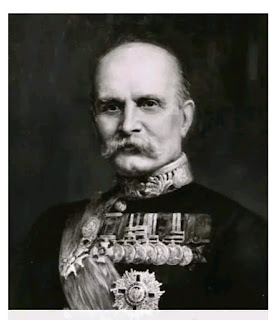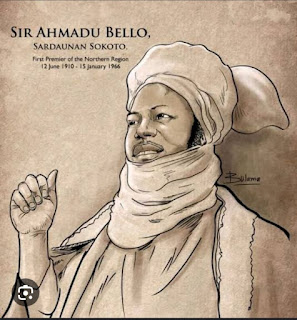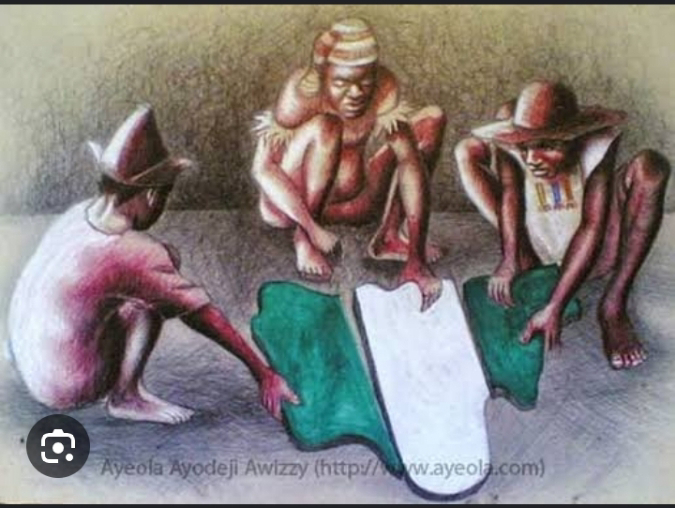Part 1: A Summary Frederick Lugard Administration and Indirect Rule In Northern Nigeria
Lord Frederick Lugard
INTRODUCTION
The area in Western Africa that became the British Colony of Nigeria can roughly be divided into three major ethnic groups, Hausa in the North, Yoruba in the Southwest and Igbo in the Southeast. The Hausa-Fulani in the North were organized into very large but loose federation of Islamic states known as the Sokoto Caliphate. The political and spiritual leader of the Caliphate is known as Caliph, however due to the large size and lack of communication between the different states it was impossible for the Caliph who was in Sokoto to govern directly. Due to this the Caliph delegated authority to the Emirs who according to Islamic law are his deputies. Obedience to the Caliph by the Emirs maintained their authority and political legitimacy while revenue generated from the states in turn sustained the capitals wealth. By the end of the nineteenth century the Sokoto Caliphate was part of dar-al-islam having established enduring connections with Cairo and Kanem-bornu empire. Despite the fact that the Caliphs authority was acknowledged by all the Emirates there were still independent regions within the borders and a number Northerners had not accepted Islam. Moreover this decentralization greatly affected the population and efficiency of the standing army. After initial incursions by the Royal Niger Company in 1897, Lord Lugard's West African Frontier Force began the conquest of various Emirates and by 1903 the British were firmly in control of the region.
RELIGION AND INDIRECT RULE
By 1901 Lord Lugard had befriended Dr.Walter Miller a dedicated C.M.S (Christian Missionary Society) missionary in Hausa-land and promised to tell the Emirs that the missionaries were his brothers. The Emirs should subsequently consent to missionaries coming into their country after it has been conquered. In the same year Lord Lugard gave Miller permission to open a mission station in Kastina if the Emir would not object. By 1903 the Emir of Bida also welcomed the C.M.S and the Toronto Industrial Mission, infact during Lord Lugard's administration C.M.S missionaries established stations in Zaria and invitations came to them from Kano as well. It important though to note that between 1900-1906 they were no complaints from the C.M.S about the administration restricting Christian enterprise in the North. This was why many Christian missionaries showed appreciation to Lugard for his policies and there was general dissent among the C.M.S about the termination of his authority in 1906.
Lord Lugard left Northern Nigeria for Honk Kong in 1906 and only returned in 1912 to oversee the amalgamation of the Northern and Southern Protectorates as Governor-general. Though many Emirs like that of Kano and Bida appreciated Western technology and welcomed missionary activities almost every year after 1906 the administration rejected C.M.S applications to establish missions in the North. Though missionary activities had been welcomed in the North, the North paled in comparison to the South who by 1914 had over 4000 students in missions schools alone while their about 650 pupils in missions schools in the whole of Northern Nigeria. It was not until 1924 that mission schools were built in Northern Nigeria, but this schools were placed in the outskirts sabon gari districts which was populated by Southerners.
British rule in Northern Nigeria was based on conquest not mutual treaty, moreover in 1903 the population of Northern Nigeria was about 7 million while Lord Lugard had only about 231 Civil European officers. By 1906 the ratio of European officers in the North was 1 to 2,900 square miles and 1 to 45000 Northerners, for the British then indirect rule was a matter of expediency rather than obligation. Due to this the primary duty of the British Resident was to promote the policy through Native Courts. In order to give practical and legal authority to the policy of indirect rule Lord Lugard enacted the Native Authority Proclamation under this power the High Commissioner has the authority to appoint native chiefs to administer each district.
The Caliph of Sokoto has many fears of mass conversion and accomodations of the British has been seen as denial of Islam by his adherents and subjects. In fact many Hausa-Fulani Emirs gave serious consideration to abandoning what they considered to be a new infidel territory, hence a large part of indirect was structured to not infringe upon religious freedom. After the defeat of Sokoto to Lugard in 1903, Lugard promised the Caliph that the British administration would not temper with Islam, he did not however enter into treaty the exclusion of missionaries from the region he only promised that the Muslims would not be forced to accept Christianity and it was not until 1906 that the British began to adopt an anti-missionary policy which was seen by most missionaries as a violation of indirect rule policy.
Subsequent administrations in Northern Nigeria altered Lugard's position on missionaries because of two main reasons; Missionaries rivalled their position of authority in the community, the worked closely with the masses and never hesitated to bring acts of injustice and oppression to the attention of the British public and colonial offices. For example by 1908 Dr.Miller was seen as a "thorn in the side" and a "dangerous man" to the colonial office that was tired of his exposure and denunciation of the attrocities commited by British administration in the Northern Nigeria. Missionaries also preached the doctrine of equality which undermined the respect of the masses to traditional authority an important factor of indirect rule. A general feeling emerged among Lugard's successors that the Native Authority should be "preserved as living museums" and any contact to the outside rule was frowned upon. After Lugard's departure in 1906 any infiltration of Western ideas was prevented. This attitude was the product of an interpretation of Indirect rule that maintained that "the first duty of a political officer is to keep Native Administrations unspotted from the world and to shield and protect them from all subversive outside influences".



Comments
Post a Comment